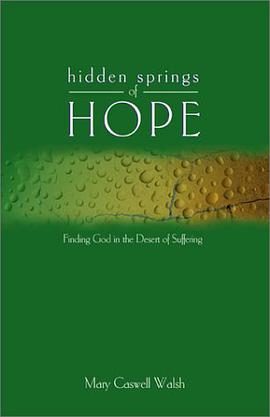

具体描述
Amazon.com Beggars and Choosers: How the Politics of Choice Shapes Adoption, Abortion, and Welfare in the United States is a thorough feminist history of public policy on abortion since Roe v. Wade, as well as a reconsideration of recent political strategy. Rickie Solinger's third book on reproductive rights hinges on a crucial semantic shift in the 1970s from "abortion rights" to the softer, less direct "choice" and "pro-choice," itself an attempt to shake off the awkward "pro-abortion" tag. While "rights" are undeniable, Solinger asserts, "choice" is a market-driven concept. "Historical distinctions between women of color and white women, between poor and middle-class women, have been reproduced and institutionalized in the "era of choice," she continues, "in part by defining some groups of women as good choice makers, some as bad." Solinger also advances a troubling economic thesis about adoption, defined roughly as "the transfer of babies from women of one social classification to women in a higher social classification or group." Bracing and well-researched, Solinger's arguments should be considered by anyone working for women's and children's rights. --Regina Marler From Publishers Weekly Feminists need a paradigm shift, argues Solinger (Wake Up Little Susie;, The Abortionist), away from the post-Roe v. Wade concept of "choice" and back to the '60s concept of "rights," based on the approach of the civil rights movement, which argued that all citizens were entitled to vote, for instance, regardless of class status. "Choice" evokes a marketplace model of consumer freedom, she explains, while rights are privileges to which one is justly and irrevocably entitled as a human being. The shift from the language of rights to that of choice was deliberate, aimed at reducing the federal welfare tab and increasing the pool of adoptable children, which began to diminish after the early 1970s, Solinger argues. Once the pill and legal abortion were available, poor women could be considered "bad choice-makers" if they kept having babies they couldn't afford hardly the government's responsibility. (Never mind, Solinger observes, that many poor women can't afford either option and might want children, just as middle-class women do.) Is this progress? No, Solinger writes: "women with inadequate resources... must... have the right to determine for themselves whether or not to be mothers." With its crisp, jargon-free prose and copious footnotes, Solinger's reexamination of those twin bogeys the Back Alley Butcher and the Welfare Queen is a provocative read for any modern feminist. Copyright 2001 Cahners Business Information, Inc. See all Editorial Reviews
作者简介
目录信息
读后感
评分
评分
评分
评分
用户评价
从主题深度上来看,这部作品触及的议题无疑是深刻且具有普适性的。它超越了单纯的故事讲述,更像是一部哲学思辨的载体。书中对“身份认同”的探讨尤其令我印象深刻,人物们为了适应外部世界的期待或生存的需要,不断地进行自我重塑,这种“面具”与“真实自我”之间的永恒拉扯,让人不禁反思我们自己有多少部分是活给别人看的。作者似乎在质问:在一个充满了既定规则和无形偏见的社会结构中,个体真正的自由意志还剩下多少空间?更值得称道的是,作者并没有提供廉价的希望或简单的答案,他笔下的世界是灰暗的、复杂的,人物的抗争往往是徒劳的,但正是这种不加粉饰的真实,才赋予了作品强大的情感冲击力。它没有贩卖廉价的励志鸡汤,而是提供了一种清醒的痛苦——这比被蒙蔽的快乐要珍贵得多。我读完后,对那些长期处于边缘地位群体的困境有了更深切的同理心。
评分这本书的语言风格简直是一股清流,充满了精准的、几乎是外科手术刀般的锐利感。作者似乎对词汇的挑选有着近乎偏执的追求,每一个动词、每一个形容词都恰如其分地落在了最需要强调的位置上,没有任何冗余和虚浮的修饰。我特别欣赏他处理对话的方式,那些人物之间的交锋,往往不是直白的冲突,而是充满了试探、隐喻和言外之意,你需要非常仔细地去品味那些没有说出口的话语,因为真正的重量往往隐藏在沉默和停顿之中。这使得阅读体验变成了一种主动的参与,而不是被动的接受信息。它让我想起一些二十世纪中叶那些严肃文学的典范,那种对语言纯粹性的执着追求,在当今快餐阅读盛行的时代显得尤为珍贵。我感觉自己像是在阅读一篇篇精心打磨的散文诗,即使是描述最平淡无奇的日常场景,也流淌着一种精致的美感。它教会了我,真正的力量往往蕴藏在最简洁的表达里。
评分这部作品的结构处理得非常精妙,简直就像一个结构主义大师的作品,每一个章节的衔接都像是严丝合缝的齿轮咬合,驱动着故事向着既定的、却又充满变数的终点前进。它的叙事节奏把握得如同古典音乐中的慢板,缓慢、沉稳,却蕴含着巨大的能量。我注意到作者非常擅长运用多重叙事线索,这些线索看似各自独立,却在不经意间相互交织、相互折射,最终汇聚成一幅关于特定时代背景下众生相的宏大画卷。这种多视角的呈现方式,极大地丰富了作品的层次感,避免了单一视角的局限性,让读者可以从不同的社会阶层和心理维度去理解人物的行为逻辑。特别是对于环境和氛围的描摹,简直是出神入化,那些关于光影、气味和声音的细节描写,仿佛不是文字,而是直接通过感官输入到读者的脑海中,营造出一种身临其境的沉浸感。我必须承认,在某些情节推进时,我甚至需要停下来,花时间去消化那些隐藏在文字表象下的深层意图,这无疑是对读者智力的一种挑战,但同时也是一种极大的阅读享受。
评分这是一本读起来让人心里沉甸甸的书,它不像那种读完后能让你立刻感到轻松愉快的快餐文学,反而更像是一场漫长的、需要你不断深入思考的旅程。作者似乎对人性中的那种微妙的挣扎有着极其敏锐的洞察力,笔下的人物都不是脸谱化的善恶符号,他们行走在道德的灰色地带,每一个决定都像是被无形的绳索牵引着,充满了不得不尔的悲剧色彩。我特别欣赏作者叙事时那种不动声色的克制感,他很少直接给出结论或进行说教,而是将那些最尖锐、最让人不安的场景赤裸裸地呈现在我们面前,任由我们自己去体会那种撕裂感。比如其中关于“选择的代价”那一段,那种缓慢渗透进骨髓的无力感,让我几乎想放下书本,暂时逃离那种压抑的氛围。它探讨的不仅仅是社会阶层固化的问题,更是个体在面对强大结构性障碍时,如何定义自己的“成功”与“失败”。读完之后,我感觉我的内心被某种看不见的秤砣狠狠地压了一下,久久不能平静。它迫使你审视自己生活中的每一次妥协,那些你以为已经翻篇的小事,在这本书里被重新放大,让你不得不直面它们在你生命轨迹中留下的深刻印记。
评分这部书的魅力还在于它对时间维度的处理上,简直是一场教科书级别的时空转换艺术。它巧妙地在当下现实和过去的记忆碎片之间进行穿梭,每一段回忆的闪回都不是为了简单地交代背景,而是像手术刀一样,精确地剖开人物此刻行为的动机和深层创伤的根源。这种非线性叙事手法,极大地增加了阅读的智力参与度,它要求读者必须主动地去建构起事件之间的因果链条,去填补那些留白的逻辑空隙。我特别喜欢作者处理“被遗忘的历史”的手法,那些看似被时间磨损的往事,在关键时刻以一种近乎幽灵般的方式重新浮现,并决定了人物的命运走向。读起来的体验,就像是在解开一个层层包裹的、结构复杂的谜团,每解开一层,你都会发现一个新的、更精妙的陷阱或线索。这种引人入胜的复杂性,让这本书拥有了极强的“二刷”价值,因为第一次阅读时你可能专注于故事脉络,而第二次则能专注于那些精妙的伏笔和文学技巧的布置。
评分 评分 评分 评分 评分相关图书
本站所有内容均为互联网搜索引擎提供的公开搜索信息,本站不存储任何数据与内容,任何内容与数据均与本站无关,如有需要请联系相关搜索引擎包括但不限于百度,google,bing,sogou 等
© 2026 onlinetoolsland.com All Rights Reserved. 本本书屋 版权所有




















